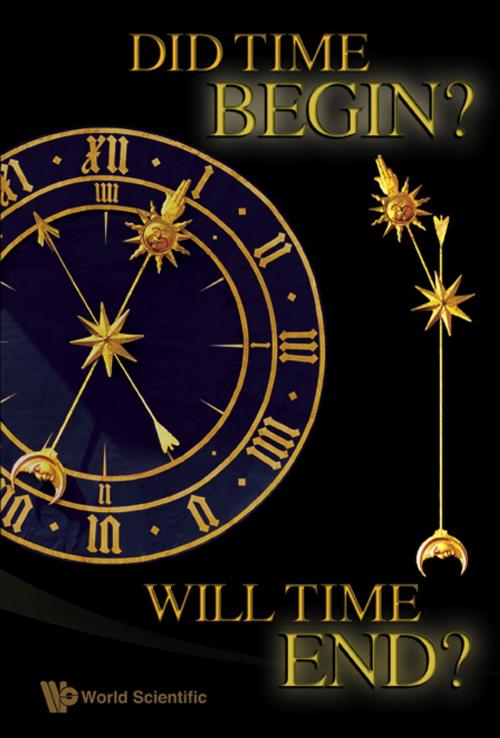Did Time Begin? Will Time End?
Maybe the Big Bang Never Occurred
Nonfiction, Science & Nature, Science, Physics, Cosmology| Author: | Paul H Frampton | ISBN: | 9789814338547 |
| Publisher: | World Scientific Publishing Company | Publication: | September 18, 2009 |
| Imprint: | WSPC | Language: | English |
| Author: | Paul H Frampton |
| ISBN: | 9789814338547 |
| Publisher: | World Scientific Publishing Company |
| Publication: | September 18, 2009 |
| Imprint: | WSPC |
| Language: | English |
Although everyone is familiar with the concept of time in everyday life and has probably given thought to the question of how time began, recent scientific developments in this field have not been accessible in a simple understandable form. This book is important as it presents to readers current ideas about the role of time in theoretical cosmology.
Recent observational discoveries, especially that the expansion rate of the universe is accelerating, have revolutionized the understanding of the energy content of the universe. This development leads to new possibilities for the beginning and end of cosmological time. This book emphasizes the notion of entropy and describes how it is theoretically possible that the universe may end in a finite time or that time can cycle and never end.
Provided here is twenty-first century scientific knowledge, written by one of the world's most eminent theoretical physicists, that will better enable the public to discuss further the fascinating idea of time. It is ideally suited also for young people considering a career in scientific research.
Contents:
- Why do Many Other Scientists Believe Time Began at a Big Bang?
- Smoothness of the Universe
- Structure in the Universe
- Dark Matter and Dark Energy
- Composition of the Universe's Energy
- Possible Futures of the Universe
- Advantages of Cyclic Cosmology
- Summary of Answers to the Questions: Did Time Begin? Will Time End?
Readership: Professional non-scientists to high school students considering a career in science.
Key Features:
- It is the only book giving a fully up-to-date description of theoretical cosmology
- It is written by a well-known theoretical physicist who has contributed useful and important pieces of the cosmological puzzle
Although everyone is familiar with the concept of time in everyday life and has probably given thought to the question of how time began, recent scientific developments in this field have not been accessible in a simple understandable form. This book is important as it presents to readers current ideas about the role of time in theoretical cosmology.
Recent observational discoveries, especially that the expansion rate of the universe is accelerating, have revolutionized the understanding of the energy content of the universe. This development leads to new possibilities for the beginning and end of cosmological time. This book emphasizes the notion of entropy and describes how it is theoretically possible that the universe may end in a finite time or that time can cycle and never end.
Provided here is twenty-first century scientific knowledge, written by one of the world's most eminent theoretical physicists, that will better enable the public to discuss further the fascinating idea of time. It is ideally suited also for young people considering a career in scientific research.
Contents:
- Why do Many Other Scientists Believe Time Began at a Big Bang?
- Smoothness of the Universe
- Structure in the Universe
- Dark Matter and Dark Energy
- Composition of the Universe's Energy
- Possible Futures of the Universe
- Advantages of Cyclic Cosmology
- Summary of Answers to the Questions: Did Time Begin? Will Time End?
Readership: Professional non-scientists to high school students considering a career in science.
Key Features:
- It is the only book giving a fully up-to-date description of theoretical cosmology
- It is written by a well-known theoretical physicist who has contributed useful and important pieces of the cosmological puzzle















